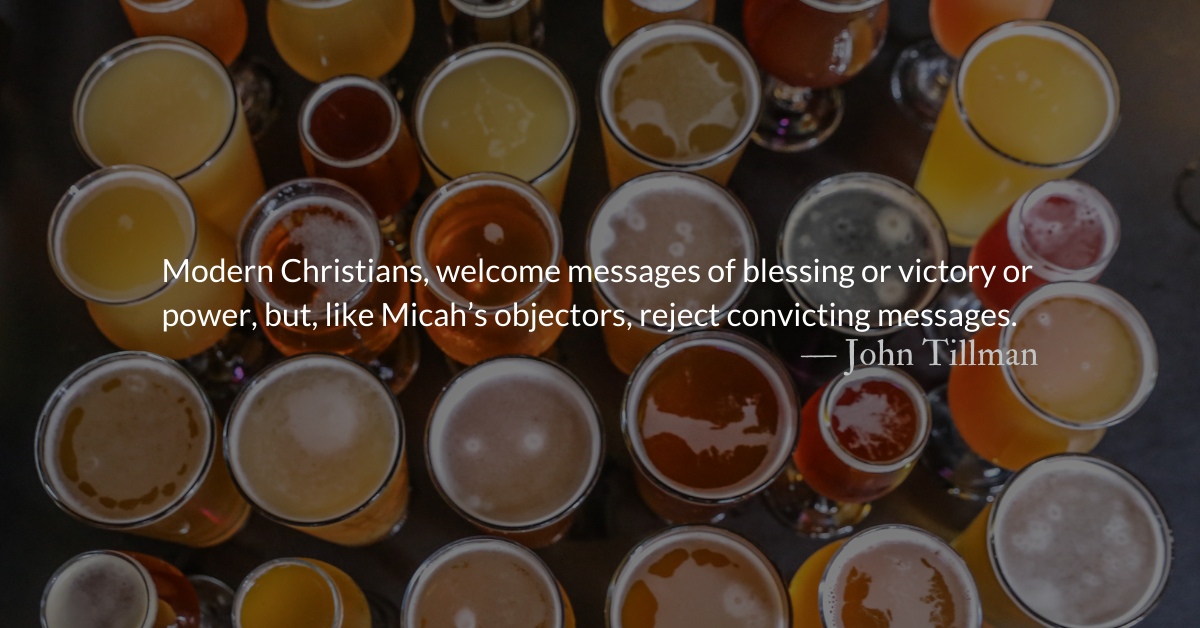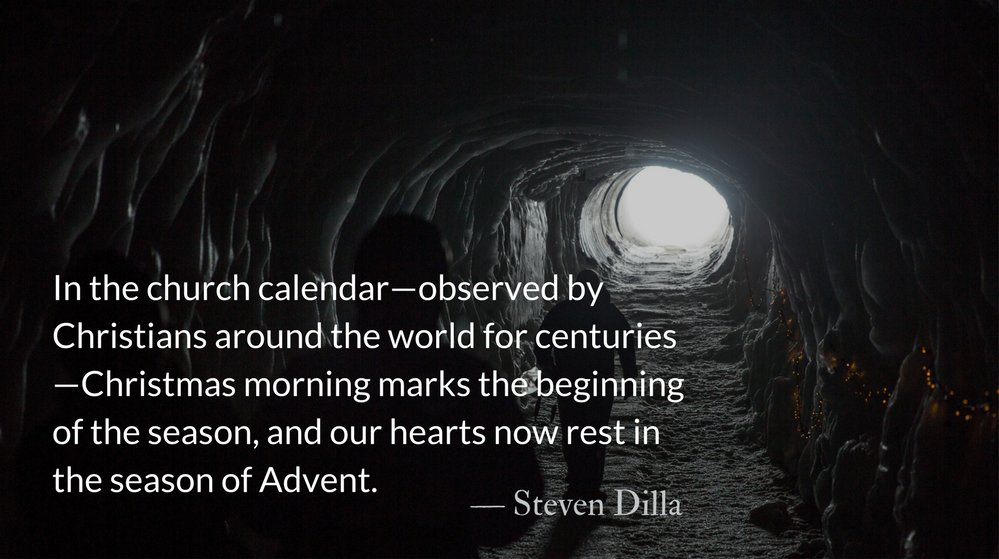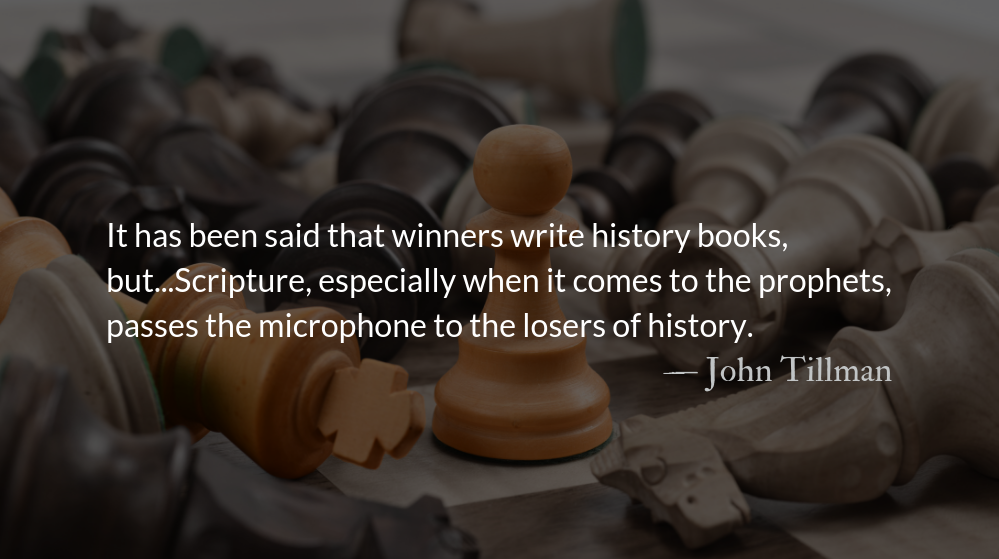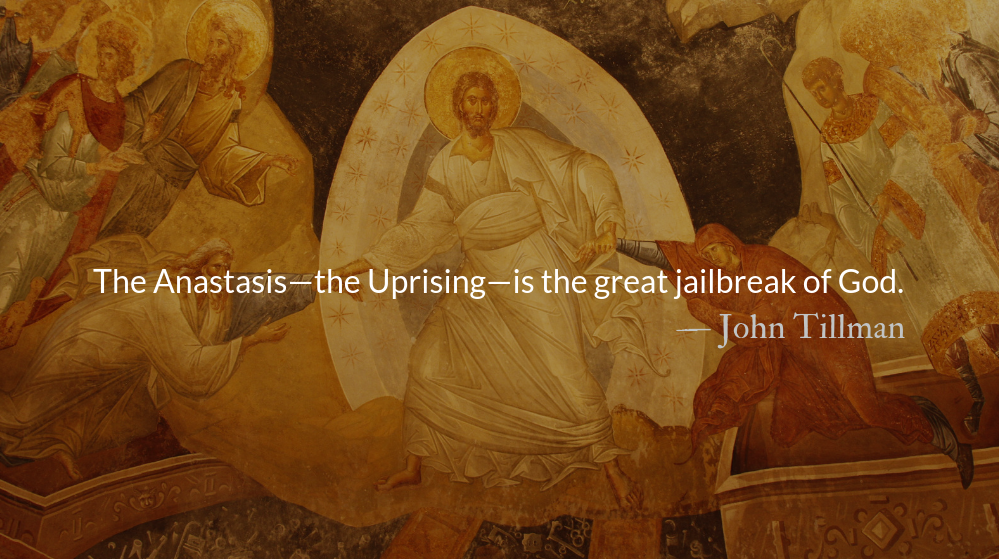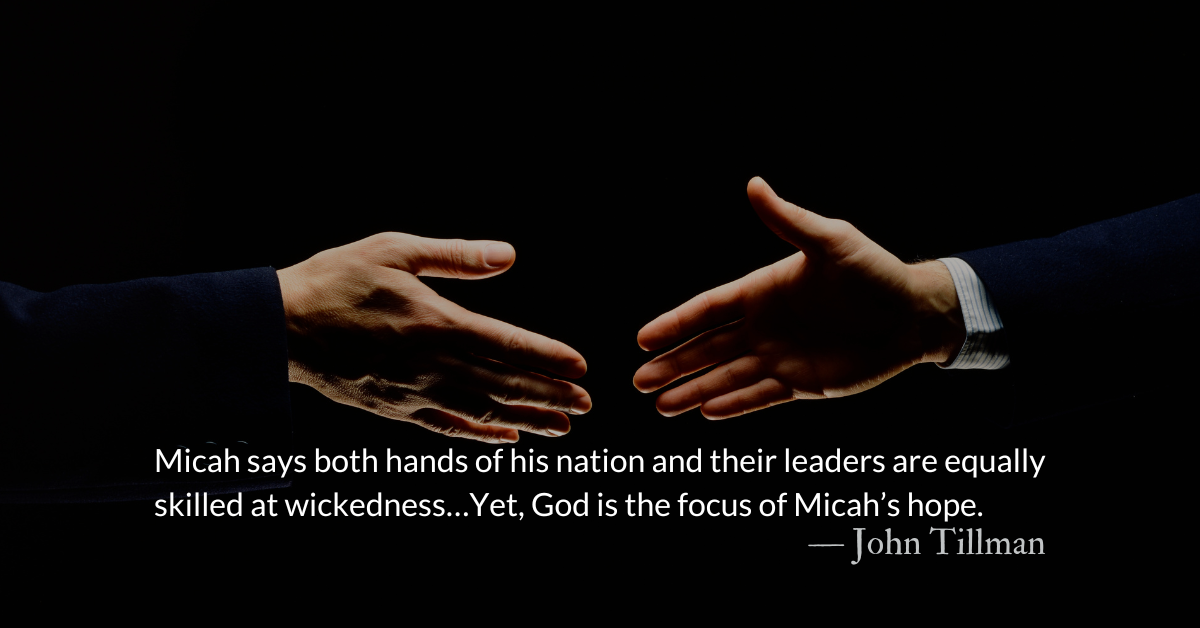Scripture Focus: Micah 2.6, 11
6 “Do not prophesy,” their prophets say.
“Do not prophesy about these things;
disgrace will not overtake us.”
11 If a liar and deceiver comes and says,
‘I will prophesy for you plenty of wine and beer,’
that would be just the prophet for this people!
Luke 11.29-32
29 As the crowds increased, Jesus said, “This is a wicked generation. It asks for a sign, but none will be given it except the sign of Jonah. 30 For as Jonah was a sign to the Ninevites, so also will the Son of Man be to this generation. 31 The Queen of the South will rise at the judgment with the people of this generation and condemn them, for she came from the ends of the earth to listen to Solomon’s wisdom; and now something greater than Solomon is here. 32 The men of Nineveh will stand up at the judgment with this generation and condemn it, for they repented at the preaching of Jonah; and now something greater than Jonah is here.
Reflection: Prophets We Want, Prophets We Need
By John Tillman
In his commentary on Micah, James Limburg described the people’s objections to Micah as grounded in “a theology which assured them of the Lord’s perpetual blessing, of his long-suffering and patience, and of his mighty acts on behalf of his people.”
Micah’s opponents had a theological concept that God’s nature and promises trapped him into perpetually improving their circumstances. In other words, God loved them too much for anything bad to happen. This misreading of the scriptures provided them a bulletproof feeling of invulnerability. To them, it was scandalous and inappropriate to proclaim guilt or catastrophic consequences.
Certainly, the Lord’s nature is long-suffering and patient. God’s first description of himself in the Bible is that he is compassionate, gracious, slow to anger, abounding in love and faithfulness. (Exodus 33.19-23, 34.5-7) But God will also have justice. In this same passage, he declares that he will not leave the guilty unpunished.
Certainly, the Lord made promises regarding Abraham’s descendants. But as John the Baptist later warned, “out of these stones God can raise up children for Abraham.” (Luke 3.7-9) Any person or group thinking God’s plans would be thwarted if they experienced suffering, defeat, imprisonment, or even death is foolish and prideful.
Modern Christians, welcome messages of blessing or victory or power, but, like Micah’s objectors, reject convicting messages. We are sometimes guilty of falsely claiming biblical promises (such as the Abrahamic promises or promises regarding our righteousness in Christ) as a cloak of invulnerability against suffering or guilt. Some today are scandalized by “prophets” who speak like Micah and Amos, especially if they speak on similar topics.
“Don’t say such things!”
“Don’t talk about justice.”
“Don’t hold us responsible for prior generations.” (God regularly holds entire nations responsible for the deeds of prior generations. — Amos 1; Joel 3.19; Ezekiel 25, 35)
Pointing out unrighteousness or the need for justice should not be scandalous.
We wrongly interpret God’s promises to us through Christ if we only see them as guarantees of blessings in this life. We are ignoring Christ’s lived example if we do not think it likely that suffering, mistreatment, or even death might be part of God’s plan or purpose for our lives.
If the only prophets we listen to promise “plenty of wine and beer,” and the “signs” we want from God are all blessings for ourselves, we may be in the same boat as Micah’s hearers.
Divine Hours Prayer: The Greeting
O God, you know my foolishness, and my faults are not hidden from you. — Psalm 69.6– Divine Hours prayers from The Divine Hours: Prayers for Autumn and Wintertime by Phyllis Tickle
Today’s Readings
Micah 2 (Listen – 2:11)
Luke 11 (Listen – 7:33)
This Weekend’s Readings
Micah 3 (Listen – 1:51) Luke 12 (Listen – 7:42)
Micah 4 (Listen – 2:33) Luke 13 (Listen – 5:02)
Read more about God is Faithful, not Indebted
Rather than an indebted God, we serve a faithful God. He does not treat us as we deserve.
Read more about Jesus with Axe and Fire
John the Baptist describes a Christ who stands ready with both axe and fire.

